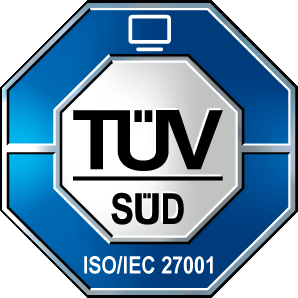As artificial intelligence (AI) continues to revolutionize healthcare and life sciences, a critical question remains at the forefront:
Can we truly trust AI with sensitive patient data?
From electronic health records (EHRs) to genomics and clinical trial reports, the healthcare ecosystem generates massive volumes of unstructured, sensitive data. Advanced AI — especially natural language processing (NLP) and large language models (LLMs) — offers a powerful way to unlock insights, automate processes, and accelerate research.
But the ethical, regulatory, and security challenges around handling this data are equally significant. As we look to the future, we believe the answer lies in reimagining healthcare AI infrastructure — combining AI capabilities with blockchain-enabled trust and control mechanisms.

AI’s Potential in Clinical and Biomedical Data
AI models, particularly domain-adapted NLP and LLMs, are evolving rapidly to:
- Extract structured knowledge from unstructured medical texts
- De-identify patient information at scale
- Predict outcomes, adverse events, and drug interactions
- Accelerate scientific discovery in genomics and pharmaceutical research
In the future, we anticipate widespread adoption of:
- Structured Language Models (SLMs) for on-premise processing
- Parallel pipelines (e.g., Spark + NLP) to handle millions of documents across institutions
- Domain-specific LLMs trained on biomedical literature, clinical notes, and molecular data
But as the scale of AI in healthcare grows, so does the need for transparent, accountable, and secure systems. That’s where blockchain could play a transformative role.
Blockchain: The Trust Layer for Future AI Systems
We envision a future where blockchain technology complements AI — not by replacing it, but by reinforcing trust, traceability, and control throughout the data lifecycle.
Here’s how this could look:
1. Immutable Data Audits
Blockchain could provide an immutable log of every data access, model inference, or transformation. This would give patients, providers, and regulators the ability to trace how sensitive data was used or processed, fostering greater accountability.
2. Consent & Governance via Smart Contracts
Patients may one day control their data using smart contracts — defining:
- Who can access their data
- What it can be used for
- How long it can be retained
This kind of fine-grained, programmable consent could become a foundational element of ethical AI in healthcare.
3. Decentralized, Federated AI
We foresee AI models being trained federatedly across hospitals or research centers, with blockchain managing coordination and governance. Data would stay local, preserving privacy, while models improve collaboratively across institutions.
A Future Architecture for Secure, Scalable AI in Healthcare
Here’s a conceptual overview of what this architecture might look like:

This future-state vision enables large-scale, compliant AI with built-in trust mechanisms.
Challenges Ahead — and Why Now is the Time to Think Big
Of course, realizing this vision won’t be easy. Some of the challenges we must address include:
- Interoperability between healthcare systems and blockchain infrastructure
- Performance and scalability of blockchain for large data volumes
- Standardizing smart contracts for healthcare consent
- Training domain-specific LLMs in privacy-preserving, federated settings
But these are solvable challenges — and we believe this direction is both necessary and inevitable as healthcare becomes more digital, distributed, and data-driven.

A Vision for Ethical, Scalable, AI-Powered Healthcare
In the years ahead, we anticipate a paradigm shift in how AI and data are managed in clinical and life sciences:
- AI that’s faster and smarter, but also governed and explainable
- Data that’s accessible for research, yet secure and traceable
- Patients who are not just data subjects — but data stakeholders
We believe that building this future responsibly means designing systems where AI and blockchain work hand-in-hand — powering innovation without compromising on ethics, privacy, or trust. Because the future of healthcare AI isn’t just about creating better models — it’s about shaping better, more transparent and accountable systems.









